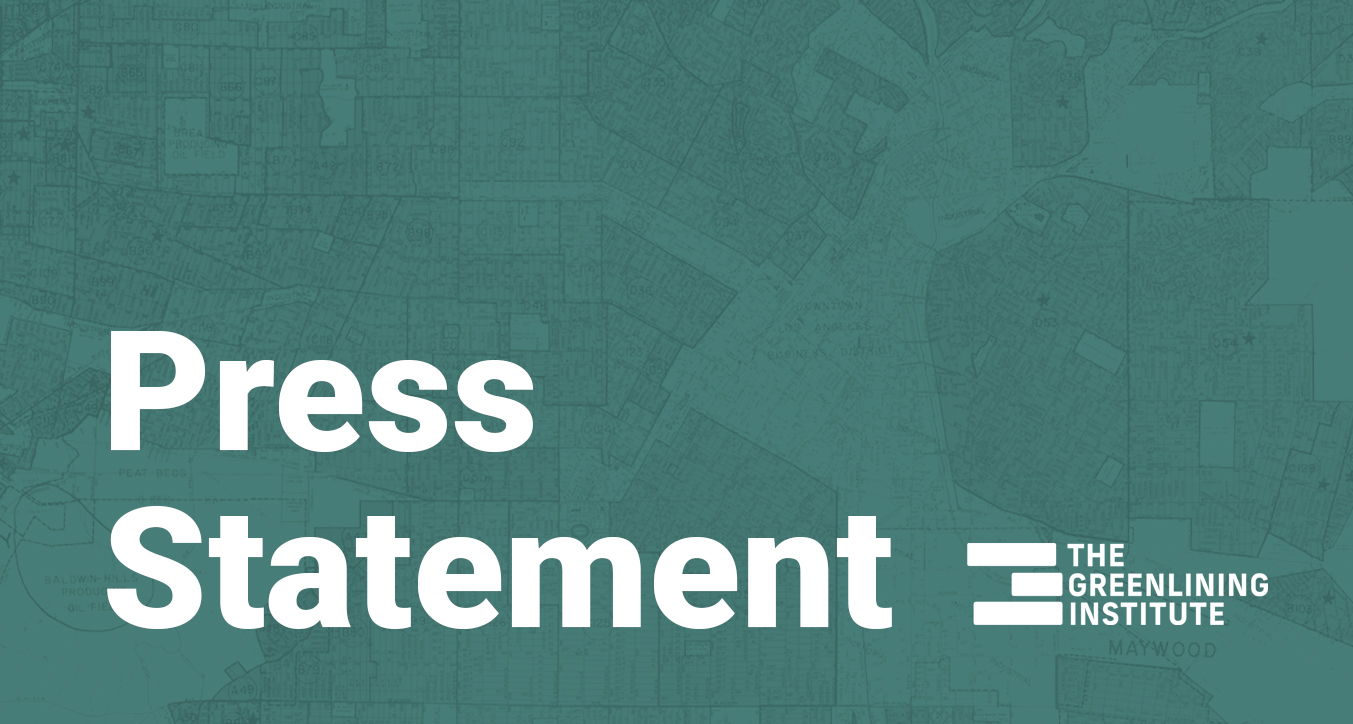Electric Vehicle Advocates Say Newsom’s Budget Falls Short on Clean Transportation Funding

Media Contact
Danielle Bell
SENIOR PROGRAM MANAGER FOR MEDIA RELATIONS
media@greenlining.org danielle.bell@greenlining.orgPolitico Pro
By Colby Bermel
SACRAMENTO — Electric vehicle advocates warned this week that Gov. Gavin Newsom’s budget proposal lacks sufficient funding for their efforts and called on state lawmakers to find more money to support clean transportation.
Presenting to legislative aides Wednesday at the Capitol, a coalition of environmentalists celebrated a 2014 law that gave big boosts to the nascent EV industry. But more progress needs to be made, the group contended, especially as state regulators prepare to update tailpipe standards, lawmakers start reviewing Newsom’s proposed budget and California spars with federal officials over state mandates.
Emily Fieberling, a conservation fellow at Environment California, said Newsom is a “champion” on EVs, but his January budget “doesn’t include and cover all the key programs that we need to have funded.” While she and others were optimistic that the governor will include more money in his May revision, she said that “we’ll be calling on folks in this room to get this done.”
Compared to Gov. Jerry Brown’s final budget, Newsom’s plan would increase funding for the California Air Resources Board’s clean vehicle rebate project. But it would also slash cash for clean trucks, buses and off-road freight equipment; CARB’s enhanced fleet modernization program; and school buses and transportation equity projects. Money for agricultural diesel engine replacements and upgrades would also see a significant decline.
Department of Finance spokesperson H.D. Palmer said the disparity is due to fluctuations in proceeds from California’s cap-and-trade auctions, which fund CARB and other agencies. In the 2018-19 fiscal year, the auctions generated $2.6 billion in revenue, while the 2019-20 fiscal year’s auctions are slated to net $2.1 billion, he said.
Newsom’s proposed budget is “not a ‘cut’ in the sense of a policy decision to reduce spending, but a reflection of aligning expenditures with projected proceeds,” Palmer wrote in an email. “As with all other revenue projections in the January Budget, we will review them in the spring and, if warranted, adjust them accordingly in the May Revision.”
Advocates were particularly worried about the possible loss in the equity category, arguing that disadvantaged and low-income communities have been disproportionately affected over the decades by vehicle-produced pollution. Funds designated for those populations were included in CA SB1275 (13R), designed to accelerate electrification of the transportation sector and provide access to that cleaned-up system for those in need.
“We’ve created a patchwork of activity across the state,” said Greenlining Institute legal counsel Joel Espino. “We’ve done a good job in terms of integrating some of these things along the way, but there’s still a lot of gaps that we need to fill,” including education and outreach efforts to affected communities, along with more charging infrastructure in their neighborhoods.
But that equipment isn’t coming online fast enough due to lengthy siting delays at local governments, said Carl London, a lobbyist for Volkswagen’s Electrify America program, which is spending $800 million in California as part of a settlement over the emissions test cheating scandal.
Union of Concerned Scientists senior engineer Dave Reichmuth cautioned that CARB’s EV goals could be difficult to achieve, as the allotment of federal tax credits for new Tesla buyers has already been depleted in California, with the incentive for General Motors and Nissan customers set to run out in the coming years. Two-fifths of current EV owners in the state say they don’t have a place to park their vehicles, Reichmuth added, further compounding the situation.
Such issues necessitate state and local action, he argued.
“We want that clear signal from manufacturers that we not only need to go electric, but a lot faster than we are now,” Reichmuth said in an interview. Regardless of automakers’ speed on the matter, he said advocates are looking beyond EV ownership to hasten the sector’s decarbonization solutions, including EV rentals, emissions-free ride-hailing services, and more electric bikes and scooters. CARB is also weighing whether to electrify airport shuttle buses, major sources of air pollution.



